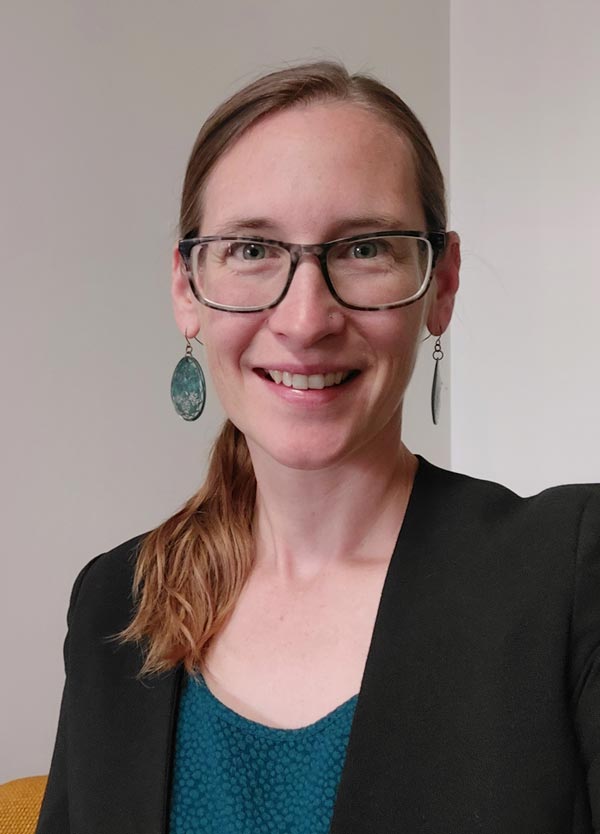Kate Droske
Academic Degrees:
- B.A. in French, English, and Secondary Education (French), University of Minnesota, Morris
- Ph.D. in French, University of Minnesota, Twin Cities
Biography:
When I was in high school and three years into my study of French, I made my first trip to France. I traveled with my mom and stayed with the great-great-great, etc. grandchildren of the comte de Rochambeau (the French general who helped the American colonies in the Revolutionary War…he’s referenced in the musical Hamilton a couple of times). At the time I was mostly thinking about how cool it was to stay in a castle in Brittany and how I wish I were better at conjugating my verbs in French. When I look back on those two weeks now, I know they changed the course of my life. It’s where I realized that with more practice and study, I could open up a whole new world of people and places through this language I was learning. It’s also where I first began to appreciate how the global is connected to the local, and that by increasing my understanding of another part of the world, I could also better understand my native language, my home culture, and even the history of my own nation (merci, Général Rochambeau).
As I’ve pursued my studies and career in French, I continue to find in this language and its cultures a powerful tool for building connections abroad and right here in the U.S. I cherish the opportunities I’ve had to live and study in France and Quebec, and I relish the ways that French allows me to connect with and create my community at home, whether it’s working with the French-immersion programs of Concordia Language Villages in Northern Minnesota, connecting with French-speaking neighbors or newcomers, or finding French treasures on the campuses of CSB and SJU, like the letter from Napoléon Bonaparte that’s housed at the Hill Museum and Manuscript Library.
Archival research (like the kind we can do together at HMML) has been an important element of my own research on the texts and traditions of Quebec, especially as expressed in epistolary writings (letters and their literary and digital counterparts). I’ve been fortunate to be able to do a couple of different research stays in Montreal, researching unpublished correspondence in the 4th largest French-speaking city in the world. I love Montreal, and I’m also fascinated by much smaller North American communities of French-speakers that exist and persist in a sea of English, like Saint-Boniface in Winnipeg, Manitoba and Arnaudville near Lafayette, Louisiana.
I’m as passionate about teaching as I am about French, and I’ve enjoyed a broad variety of teaching opportunities in high school and university classrooms, at French immersion summer camps with youth and adults, online with synchronous and asynchronous learning platforms, and abroad with students in France, Belgium, and Canada. I value the ways each of these different placements has challenged me to be a responsive, creative teacher, and I draw upon all of these pedagogical experiences as I design courses and deliver lessons here at CSB and SJU.
When I’m not on campus, you may find me at my family’s farm, caring for animals and growing, gathering, and sharing food, or otherwise enjoying time in the great outdoors.

Kate Droske, visiting assistant professor
CSB Richarda P24
320-363-5365
[email protected]
College of Saint Benedict
Saint John’s University
Jeff DuBois
Chair, Languages and Cultures Department
CSB Richarda P32
320-363-5188
Jennifer Schwichtenberg
Department Coordinator
CSB Richarda P38
320-363-5067
SJU Quad 253A
320-363-3093
